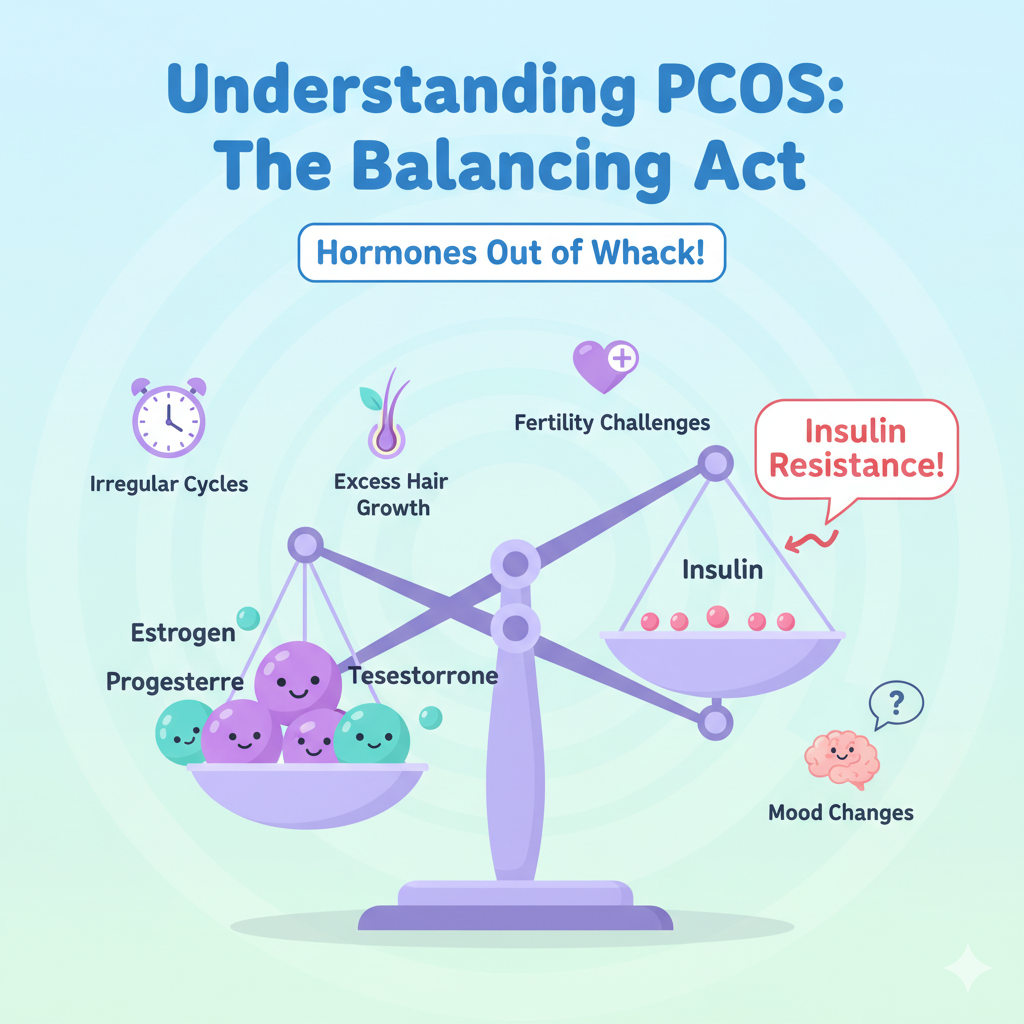
Hormones are chemical messengers that control energy, mood, metabolism, menstrual cycles, libido, and more. When they fall out of balance, your body often sends signals — sometimes subtle, sometimes unmistakable. Detecting these early signs can help you get the right testing and treatment faster.
1. Persistent Fatigue — Even After Rest
If you’re sleeping 7–8 hours but still wake up exhausted or feel drained through the day, consider a hormonal cause. Thyroid dysfunction (low T3/T4), adrenal stress (cortisol imbalance), and changes in estrogen/progesterone can all reduce energy and cause brain fog.
Watch for: consistent tiredness, poor concentration, inability to “recharge” after sleep, or increased napping.
2. Unexplained Weight Gain or Trouble Losing Weight
Sudden or unexplained weight gain — particularly around the abdomen — can be a hormonal signal. Chronic high cortisol (from long-term stress), insulin resistance (common in PCOS), and low thyroid function can all promote weight gain or make weight loss difficult.
3. Irregular Periods or Noticeable Changes in Menstrual Health
For women, menstrual irregularities are among the most reliable signs of hormonal imbalance. Missing periods, heavy bleeding, very light flow, longer or shorter cycles, or breakthrough bleeding can point to issues with estrogen, progesterone, thyroid, prolactin, LH or FSH.
4. Mood Changes, Anxiety, or Depression
Hormones affect brain chemistry. If you experience new or worsening anxiety, mood swings, irritability, or depressive symptoms alongside physical changes, hormones may be involved. Don’t assume it’s “just stress” — a medical evaluation can reveal treatable causes.
5. Changes in Skin, Hair, or Libido
Hormonal shifts often show on the skin and hair: acne (jawline/chin), increased facial/body hair (hirsutism), hair thinning, or dry skin. Drops in estrogen or testosterone can also decrease sexual desire and cause vaginal dryness.
How We Diagnose & Treat Hormonal Imbalance
At Blossom Women’s Clinic we take a personalized approach to hormonal health:
- Thorough history & symptom journal review
- Targeted blood tests (thyroid panel, reproductive hormones, metabolic markers)
- Evaluation for conditions like PCOS, thyroid disease, adrenal dysfunction, and perimenopause
- Evidence-based treatment plans including medication when needed, plus lifestyle, nutrition, and stress-management support
Frequently Asked Questions
How long does it take to balance hormones?
Timeline varies by cause and treatment: some patients notice improvement in weeks, while others need months of treatment and monitoring. Lifestyle changes plus medication (if needed) are often most effective.
Which tests will I need?
Common tests include thyroid-stimulating hormone (TSH), free T4/T3, fasting blood glucose & insulin, reproductive hormones (FSH, LH, estradiol, progesterone, testosterone), and sometimes adrenal cortisol testing. Your clinician will tailor tests to your symptoms.
Can lifestyle changes help?
Yes — diet, sleep quality, exercise, and stress reduction are core parts of hormone care. We combine medical treatment with lifestyle support for the best outcomes.


